John R. Bancroft's Blog
August 21, 2017
August 21, 1968

Hitchhiking home from work, Izzy gets a ride with a man who is upset about the political developments in Czechoslovakia, where the Russians have just put down an independence movement.
Summer was changing. The heat was drying out, the sunlight softening.
I was hitching home from work. A 1959 Lincoln Premiere, one of the biggest cars ever built in America, was heading my way. It was the hard top, a dull bronze body and white roof, quad headlights, a pair stacked on top of each other with a huge, low-slung massif of chrome anchoring the front of the car to the road. The Premiere rolled halfway off the paved road onto the gravel shoulder where I was standing, a luxury yacht from a lost harborage of car design. You could not look away from its wings, which took off from the back wheels, jutting from the frame of the car like epaulettes on a Rushmorian military costume.
I opened the door to a spacious interior in brown and white leather, a steering wheel that looked a yard wide in diameter, a dashboard without borders. The driver, a man in his early 30s, was smoking a cigarette. He was also crying.
Not sobbing; tears were tracking down his cheeks and his eyes were red. He was not trying to regain his composure.
“Are you okay?” I asked.
And at the end of the ride, a revolutionary cigarette flick.
He sighed. “I was 22 and trained as metalworker. My father told me to leave, find a new life in a free country because Hungary would only be prison. He said I should send for him when I am settled. I left home with a suitcase and walked to the Austrian border. In refugee camp, I was put in a group going to America because I said I had uncle here. I didn’t, but nobody checked. So I was put on Dwight D. Eisenhower’s navy ship and sent to New York City.”
“Did you get your father?”
He spoke as if he had lived that pain so many times that there was only numbness there. “No, he died a few years after I leave. Momma is still there, but she don’t want to go anywhere now. It’s a shame because Hungarians are good socialists, just not very good Russian slaves.”
He sucked again on the cigarette and turned back to the steering wheel, a little more at peace.
“What are the sinews and souls of Russian serfs and Republican slaves but fast-fish, whereof possession is the whole of the law,” I mused. The driver looked at me and shrugged.
“Can I ask you one more question?”
“Sure.” He had pulled the transmission lever back into drive and was sliding into a space in the traffic, the cigarette clenched in his lips.
“Why do you throw your cigarettes in the street?”
He looked at me and smiled. “Hey, motherfucker, I’m a little anarchist, too.”
This is how anarchism made it into the study, already overrun by atheism.
Published on August 21, 2017 11:00
August 2, 2017
August 2, 1968
On their way to a regrettable evening, Izzy and Juliana see a woman toss a cigarette from a 1959 Ford F100 pickup truck.
Later, at Martine's house ...
When I came out of the cabana, Juliana was hanging on the edge of the pool, talking to Martine, who sat smoking at the table with a clever look in his face. I dove into the deep end. I ranked third among swimmers in my family, but I had merit badges to prove I knew my way around a pool.
Juliana swam to me. For 10 minutes or so we were, at least in my mind, back in the creek, almost unaware of Martine, the sun crouching to squeeze through tree limbs, the subtle stench of rich-guy pool chemicals and wealth and slate surrounding us. Not so unlike the natural rub of creek scum, only a different flavor.
Martine never came into the pool, but I felt his presence more and more. It began to feel like Juliana and I were swimming for an audience, dance partners in an aquatic audition of some kind, or primitive life forms jerking about on a microscope slide.
The water was going sour and I pulled myself out, not knowing whether she would follow. I hadn’t the forethought to bring a towel with me from the cabana, as Juliana had, so I took my seat with Vic Martine and the Victor Electrowriter and simply air dried.
The houseman showed up. Martine asked if we wanted something to drink. Juliana piped up from the pool, her face beaming, asking for a whiskey sour.
Again, who was she?
I said I would have one too.
“Truth serum for all!” Martine said.
It occurred to me that he might already be drunk. I never saw it coming at the race track.
“In landlessness alone resides the highest truth,” I said, “so it is better to perish in that howling infinite than be ingloriously dashed upon the lee, even if that were safety.”
Martine looked like he didn’t get it. They usually don’t. Then the fellow came with a tray of drinks and Juliana arose glistening from the pool, a freshly washed peach goddess. She wrapped herself in the thick towel she had brought from the cabana.
It went downhill from there.
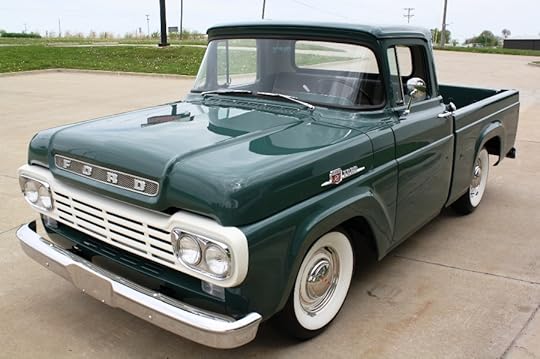
Later, at Martine's house ...
When I came out of the cabana, Juliana was hanging on the edge of the pool, talking to Martine, who sat smoking at the table with a clever look in his face. I dove into the deep end. I ranked third among swimmers in my family, but I had merit badges to prove I knew my way around a pool.
Juliana swam to me. For 10 minutes or so we were, at least in my mind, back in the creek, almost unaware of Martine, the sun crouching to squeeze through tree limbs, the subtle stench of rich-guy pool chemicals and wealth and slate surrounding us. Not so unlike the natural rub of creek scum, only a different flavor.
Martine never came into the pool, but I felt his presence more and more. It began to feel like Juliana and I were swimming for an audience, dance partners in an aquatic audition of some kind, or primitive life forms jerking about on a microscope slide.
The water was going sour and I pulled myself out, not knowing whether she would follow. I hadn’t the forethought to bring a towel with me from the cabana, as Juliana had, so I took my seat with Vic Martine and the Victor Electrowriter and simply air dried.
The houseman showed up. Martine asked if we wanted something to drink. Juliana piped up from the pool, her face beaming, asking for a whiskey sour.
Again, who was she?
I said I would have one too.
“Truth serum for all!” Martine said.
It occurred to me that he might already be drunk. I never saw it coming at the race track.
“In landlessness alone resides the highest truth,” I said, “so it is better to perish in that howling infinite than be ingloriously dashed upon the lee, even if that were safety.”
Martine looked like he didn’t get it. They usually don’t. Then the fellow came with a tray of drinks and Juliana arose glistening from the pool, a freshly washed peach goddess. She wrapped herself in the thick towel she had brought from the cabana.
It went downhill from there.

Published on August 02, 2017 10:43
July 28, 2017
July 26, 1968
This is one of the rare days when there were two sightings of butt-flickers. The first was Martine, crushing his smoke in the driveway. The second was on the way home, with Izzy driving the Maserati.
A few miles from Martine’s house, along the curving and dipping River Road, we cruised up behind a 1966 Mustang coupe just as the driver flicked a cigarette onto the road, where it exploded in a tiny fireworks display. We purred ahead like a confident Italian weightlifter, operas of horsepower in reserve, riding on his left taillight, waiting for the road ahead to give us a passing lane. When it did, we lifted off like a rocket, passing the Mustang, and Juliana leaned toward the open window.
“You dropped something back there,” she yelled as we accelerated into the open road, and then the empty night. “Everybody’s making love or else expecting rain,” she sang to the wind.
When we got back to Martine’s house, I stopped the Maserati outside the garage and turned off the ignition.
I left the wad of money on the passenger seat after Juliana and Martine got out. If I could throw new bell-bottom pants in a trash can, I could leave a few weeks’ pay in a rich guy’s car.
Driving home in my father’s car was a letdown, though I tried to tell myself that it wasn’t.

A few miles from Martine’s house, along the curving and dipping River Road, we cruised up behind a 1966 Mustang coupe just as the driver flicked a cigarette onto the road, where it exploded in a tiny fireworks display. We purred ahead like a confident Italian weightlifter, operas of horsepower in reserve, riding on his left taillight, waiting for the road ahead to give us a passing lane. When it did, we lifted off like a rocket, passing the Mustang, and Juliana leaned toward the open window.
“You dropped something back there,” she yelled as we accelerated into the open road, and then the empty night. “Everybody’s making love or else expecting rain,” she sang to the wind.
When we got back to Martine’s house, I stopped the Maserati outside the garage and turned off the ignition.
I left the wad of money on the passenger seat after Juliana and Martine got out. If I could throw new bell-bottom pants in a trash can, I could leave a few weeks’ pay in a rich guy’s car.
Driving home in my father’s car was a letdown, though I tried to tell myself that it wasn’t.

Published on July 28, 2017 13:29
July 14, 2017
Bastille Day, 1968
Izzy is hitch-hiking to work and gets picked up by a hippie smoking a joint in a 1960 VW, listening to Bob Dylan complain about Maggie's Farm. He throws the roach out the window and would have gladly accepted a bumper sticker if Izzy had had one with him.
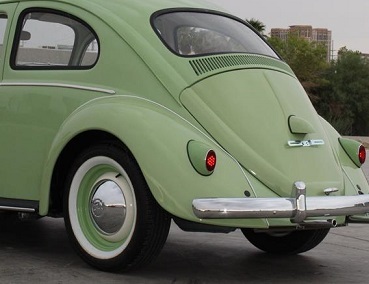
Later in the day, Izzy defends the honor of fair Juliana by running naked through the woods on a Sunday afternoon to chase down two pre-teen punks who have run off with their clothes. But first, he has to invite her to go skinny dipping.
“Do you want to go in?” I asked.
“I don’t have a bathing suit,” she answered.
“We don’t need them today. It’s Bastille Day,” I said, pulling the tee shirt over my head and unbuttoning my shorts. “The day of glory has arrived,” I sang.
And then I was standing naked beside her, more than a little surprised by my revolutionary spirit, feeling the July sunlight and the warm breath of the woods and the algae and the rocks holding the slow-creeping water in front of us. I didn’t know whether she would follow, but I understood that having made the invitation I had to give her as much time as she needed to respond.
I am certain that I had a quite ridiculous look on my face while I waited for her to decide, hanging out there, as it were. She looked me over slyly, unable to suppress a smile. I committed to not looking away from her face.
“You are going to have to go in the water and look the other way,” she said, fingering the top button on her blouse.
That was all the direction I needed. I turned and walked down the rock as it submerged into the still creek, gathering a veneer of moss as it went deeper, open fissures along the way, the occasional rogue outcropping, and only the vaguest sense of a current sliding incrementally toward the next lock that marked the gravitational bottom of the pool, a languid, summery chunk of Pennsylvania hung up on its way through the woods. I found the edge of the rock shelf a little over waist deep and crouched down until my chin was in the water, then slowly pushed upstream for a few easy strokes in the shallow water, not wanting to put too much distance between us. Then I turned back.
She was already in the water, crouched down to her shoulders in the deepest part of the creek. I drifted toward her as though the current alone was pulling me. She had an expectant and confident look, watching me carefully as I stood, waist-deep, and walked across the slippery and sloping slab.

Later in the day, Izzy defends the honor of fair Juliana by running naked through the woods on a Sunday afternoon to chase down two pre-teen punks who have run off with their clothes. But first, he has to invite her to go skinny dipping.
“Do you want to go in?” I asked.
“I don’t have a bathing suit,” she answered.
“We don’t need them today. It’s Bastille Day,” I said, pulling the tee shirt over my head and unbuttoning my shorts. “The day of glory has arrived,” I sang.
And then I was standing naked beside her, more than a little surprised by my revolutionary spirit, feeling the July sunlight and the warm breath of the woods and the algae and the rocks holding the slow-creeping water in front of us. I didn’t know whether she would follow, but I understood that having made the invitation I had to give her as much time as she needed to respond.
I am certain that I had a quite ridiculous look on my face while I waited for her to decide, hanging out there, as it were. She looked me over slyly, unable to suppress a smile. I committed to not looking away from her face.
“You are going to have to go in the water and look the other way,” she said, fingering the top button on her blouse.
That was all the direction I needed. I turned and walked down the rock as it submerged into the still creek, gathering a veneer of moss as it went deeper, open fissures along the way, the occasional rogue outcropping, and only the vaguest sense of a current sliding incrementally toward the next lock that marked the gravitational bottom of the pool, a languid, summery chunk of Pennsylvania hung up on its way through the woods. I found the edge of the rock shelf a little over waist deep and crouched down until my chin was in the water, then slowly pushed upstream for a few easy strokes in the shallow water, not wanting to put too much distance between us. Then I turned back.
She was already in the water, crouched down to her shoulders in the deepest part of the creek. I drifted toward her as though the current alone was pulling me. She had an expectant and confident look, watching me carefully as I stood, waist-deep, and walked across the slippery and sloping slab.
Published on July 14, 2017 17:12
July 8, 2017
July 8, 1968
Izzy goes to his last Boy Scout meeting and then half-heartedly follows a 1957 Chevy Bel Air.
We pulled up at a four-way stop sign, and a ’57 Chevy Bel Air arriving at almost the same time paused only briefly and then shot across our bow through the intersection. There were teenagers inside and they were smoking.
“Follow that car, please,” I said.
The people in my life were getting used to this, and Juliana didn’t even blink. We turned to follow the Chevy, a heavy, boxy carriage with modestly long skirts and an abrupt windshield that wrapped slightly around the sides of the front cabin. Its distinctive forehead leaned slightly into the wind, and a flat, jet-plane hood ornament steered it streaking down the road ahead.
The ‘57 Bel Air was a popular car for teenagers, reliable and roomy and of an age that middle-class dads no longer saw as suitable for the family car.
A passenger flicked his cigarette, a dramatic fling into a cornfield that may have sailed several rows deep.
We followed the Bel Air a little ways, but our hearts were elsewhere. We gave up and headed down a dark farm lane tucked between a cornfield and a line of trees, where we worked on the merit badge in French kissing, an unexpectedly easy one to earn.
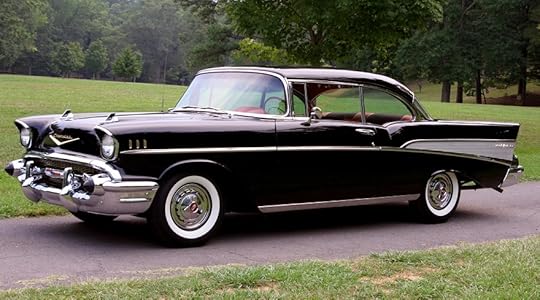
We pulled up at a four-way stop sign, and a ’57 Chevy Bel Air arriving at almost the same time paused only briefly and then shot across our bow through the intersection. There were teenagers inside and they were smoking.
“Follow that car, please,” I said.
The people in my life were getting used to this, and Juliana didn’t even blink. We turned to follow the Chevy, a heavy, boxy carriage with modestly long skirts and an abrupt windshield that wrapped slightly around the sides of the front cabin. Its distinctive forehead leaned slightly into the wind, and a flat, jet-plane hood ornament steered it streaking down the road ahead.
The ‘57 Bel Air was a popular car for teenagers, reliable and roomy and of an age that middle-class dads no longer saw as suitable for the family car.
A passenger flicked his cigarette, a dramatic fling into a cornfield that may have sailed several rows deep.
We followed the Bel Air a little ways, but our hearts were elsewhere. We gave up and headed down a dark farm lane tucked between a cornfield and a line of trees, where we worked on the merit badge in French kissing, an unexpectedly easy one to earn.

Published on July 08, 2017 09:42
July 1, 2017
July 1, 1968
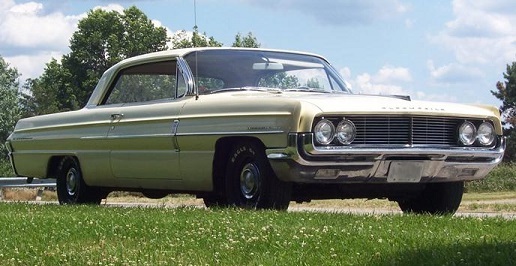
From the AutoFlick chronology at www.johnrbancroft.com
A 1962 Olds 88 gives Speedy the idea to make bumper stickers for people who throw cigarettes from their cars.
“At some point we may find the same car or the same driver in our sample,” Speedy said. “Maybe we should mark them, the way biologists tag species in the wild for study.”
In the National Geographic, the savannah science guys always shot the wildlife with tranquilizers before they stapled tags in their ears. I wondered if this is what my father had in mind.
“It can’t be permanent—we don’t want to tamper with the evidence—and we may have to tag them without their knowing.” I was used to the fact that my father often thought out loud.
“You mean put a mark on the car, right?” I said, trying to lead the witness.
“Maybe the crayons that used-car dealers use on windshields would work on a bumper ...”
I should have stepped in there with something to change our bearing, but I came up empty.
“Or something else,” my father said, “like a bumper sticker.”
I was afraid to ask.
“I flick butts.” Speedy seemed pleased with this.
“I guess that would show them,” I said.
Published on July 01, 2017 09:38
•
Tags:
autoflick, john-r-bancroft
June 27, 2017
June 27, 1968
A man driving a 1963 Rambler Ambassador throws his cigarette onto the road. Speedy runs him down, knowing the butt-flicker is the owner of the newspaper where he works.
After work, Izzy has an important meeting with Juliana.
The maintenance barn was an inheritance from the days when the country club had been somebody’s farm on the edge of town. It was filled with equipment—mowers, tractors, three-wheeled jitneys for getting around—and a small mountain of 70-pound bags of fertilizer sold by the public works department of Milwaukee, Wisconsin, and manufactured by the good people of Milwaukee doing what comes natural to them.
I washed up more thoroughly than usual and sauntered down the lane toward the employee parking lot. Juliana was smoking a cigarette in her family’s Fairlane parked under a tree.
She had her waitress uniform on and it was a little tight, which I later found out was by design, and the top two buttons were undone. It was hot, but having been outside all day I was used to it. She ground her cigarette out in the dashboard ashtray, looking at me with a smile in her eyes.
“You were going to throw that out the window, weren’t you?” I said.
“And have the whole goddamn Boy Scouts of America breathing down my neck?” She fired up the Fairlane, and we rolled in a very well-behaved manner out the entrance road of the country club. I studied her thighs beneath the steering wheel.
It was soon clear that we were not going directly home.
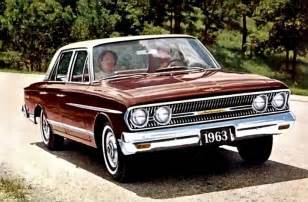
After work, Izzy has an important meeting with Juliana.
The maintenance barn was an inheritance from the days when the country club had been somebody’s farm on the edge of town. It was filled with equipment—mowers, tractors, three-wheeled jitneys for getting around—and a small mountain of 70-pound bags of fertilizer sold by the public works department of Milwaukee, Wisconsin, and manufactured by the good people of Milwaukee doing what comes natural to them.
I washed up more thoroughly than usual and sauntered down the lane toward the employee parking lot. Juliana was smoking a cigarette in her family’s Fairlane parked under a tree.
She had her waitress uniform on and it was a little tight, which I later found out was by design, and the top two buttons were undone. It was hot, but having been outside all day I was used to it. She ground her cigarette out in the dashboard ashtray, looking at me with a smile in her eyes.
“You were going to throw that out the window, weren’t you?” I said.
“And have the whole goddamn Boy Scouts of America breathing down my neck?” She fired up the Fairlane, and we rolled in a very well-behaved manner out the entrance road of the country club. I studied her thighs beneath the steering wheel.
It was soon clear that we were not going directly home.

Published on June 27, 2017 07:37
June 24, 2017
June 24, 1968
Speedy reminisces about the coal barges on the Delaware canal.
We were finishing dinner on the picnic table behind our house. Our lawn dissolved into the woods, which held in its bosom a minor Pennsylvania creek that grew from gully washes and insignificant streams and eventually made a small dent in the Delaware River not too far from the spot where, on average, the big river began to back up twice a day from the heaving oceans. My father was reminiscing about going to the canal when he was just small and watching barges loaded down with coal creep along at mule speed from the mines on their way to Bristol.
Unburdened, the barges floated lighter and higher on the way home. “I was happy for the mules heading upstream,” he said. The business of carrying light and heat captured in rocks of carbon down the canal was over by the time he started going to school. The extraction of ancient carbon wasn’t over—not by a long shot—but industry had found that it was more efficient to use combustion engines to bring the coal to market, instead of mules, men and gravity pulling barges over sleepy water.
Later, Izzy commits a hippie faux pas while riding with Juliana in a 1957 Dodge Regent to see the Fifth Dimension at the music circus outside of Lambertville.
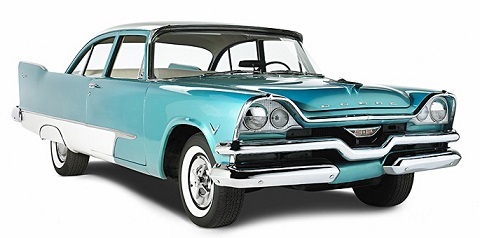
We were finishing dinner on the picnic table behind our house. Our lawn dissolved into the woods, which held in its bosom a minor Pennsylvania creek that grew from gully washes and insignificant streams and eventually made a small dent in the Delaware River not too far from the spot where, on average, the big river began to back up twice a day from the heaving oceans. My father was reminiscing about going to the canal when he was just small and watching barges loaded down with coal creep along at mule speed from the mines on their way to Bristol.
Unburdened, the barges floated lighter and higher on the way home. “I was happy for the mules heading upstream,” he said. The business of carrying light and heat captured in rocks of carbon down the canal was over by the time he started going to school. The extraction of ancient carbon wasn’t over—not by a long shot—but industry had found that it was more efficient to use combustion engines to bring the coal to market, instead of mules, men and gravity pulling barges over sleepy water.
Later, Izzy commits a hippie faux pas while riding with Juliana in a 1957 Dodge Regent to see the Fifth Dimension at the music circus outside of Lambertville.

Published on June 24, 2017 09:27
June 20, 2017
June 20, 1968
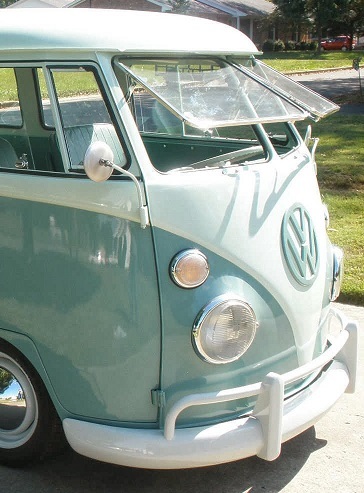
Riding home with his mother from work, Izzy spots a butt-flick from a 1964 Volkswagon bus. In Thailand, the air force was dropping flowers and popcorn from airplanes to celebrate the adoption of a new national constitution. When they get home, Speedy is excited about a constitutional argument about the legal standing of trees.
My father was excited because a justice of the U.S. Supreme Court, a Minnesotan named William O. Douglas, was there to support the protesters.
“Justice Douglas said that trees and paths and waterways should have the same legal protection that people and corporations have,” my father told us over our hamburgers and salad as the sun began to set. “He said the environment and all its parts should have standing to bring lawsuits in court. It was the damnedest thing I ever heard.”
I was trying to picture trees in a courtroom.
“When I was a kid, we used to go fishing over there and no one gave much thought to the barges on the canal. And then one year, they weren’t there. It was funny to have this big-shot Supreme Court justice and his newsmen and photographers and FBI spies making so much noise about preservation.
“Nobody can bring the barges back,” he said.
Then something came to his mind. “I started to interview this guy who didn’t seem like one of the protesters—his shoes just weren’t right—and he started to tell me why he was there and then stopped. He asked me if I was undercover, which is the most bizarre thing anyone has ever asked me.
“I told him I worked for the paper, and he thought about it for a moment and said he didn’t have anything to tell me.”
Published on June 20, 2017 10:16
June 16, 2017
June 16, 1968
Father's Day in 1968. There are two auto-flick sightings that day: one on the way to visit his uncle at the hospital.
And in the evening, another with his sister.
They come up on a man smoking a cigarette while driving a 1961 Dodge Phoenix. .
“Follow that car,” I said.
“Is this for your weirdo study?” she asked.
“We gotta see what he does with the cigarette.”
She obligingly picked up the pace and slip-streamed into the left lane, tracking the Phoenix. It was the two-door model, with the wing starting just behind the door as a pair of parallel chrome lines. Its top edge leaned inward, over the trunk, creating a surface that faced up and away from the car. The wing itself was scooped out, but when it made the finishing arc it was still facing away from the car at an angle. The whole thing looked like a long, road-hugging flying fish.
It was also an open-road rocket, and Katie had to push the Dart to keep pace. The Doors’ “Strange Days” was on the radio, a good soundtrack for logging sociological data. After a mile or so, the driver flicked his cigarette into the highway wind, and it hit the pavement in a miniature fireworks display, spraying red sparks splintering across the road.
“Now what?” Katie asked.
“Sometimes we follow them and ask them why they threw their cigarettes out the window.”
“Okay.” She took the challenge and pushed ahead into the middle lane, alongside the Phoenix.
We pulled even with the car, but we couldn’t see the driver clearly. Katie turned down the Doors.
“Hey! A**hole!” she yelled. “You threw your butt in the road back there!”
“F**k off, man,” the driver replied, giving us the finger.
Katie gave him the finger back. I lifted my right hand out of the window and gave him my finger too.
It was my first time.
“That felt kinda good,” Katie said, as she lifted her foot off the gas and we slowed to our normal pace.
And in the evening, another with his sister.
They come up on a man smoking a cigarette while driving a 1961 Dodge Phoenix. .
“Follow that car,” I said.
“Is this for your weirdo study?” she asked.
“We gotta see what he does with the cigarette.”
She obligingly picked up the pace and slip-streamed into the left lane, tracking the Phoenix. It was the two-door model, with the wing starting just behind the door as a pair of parallel chrome lines. Its top edge leaned inward, over the trunk, creating a surface that faced up and away from the car. The wing itself was scooped out, but when it made the finishing arc it was still facing away from the car at an angle. The whole thing looked like a long, road-hugging flying fish.
It was also an open-road rocket, and Katie had to push the Dart to keep pace. The Doors’ “Strange Days” was on the radio, a good soundtrack for logging sociological data. After a mile or so, the driver flicked his cigarette into the highway wind, and it hit the pavement in a miniature fireworks display, spraying red sparks splintering across the road.
“Now what?” Katie asked.
“Sometimes we follow them and ask them why they threw their cigarettes out the window.”
“Okay.” She took the challenge and pushed ahead into the middle lane, alongside the Phoenix.
We pulled even with the car, but we couldn’t see the driver clearly. Katie turned down the Doors.
“Hey! A**hole!” she yelled. “You threw your butt in the road back there!”
“F**k off, man,” the driver replied, giving us the finger.
Katie gave him the finger back. I lifted my right hand out of the window and gave him my finger too.
It was my first time.
“That felt kinda good,” Katie said, as she lifted her foot off the gas and we slowed to our normal pace.
Published on June 16, 2017 13:31
•
Tags:
dodge, father-s-day



